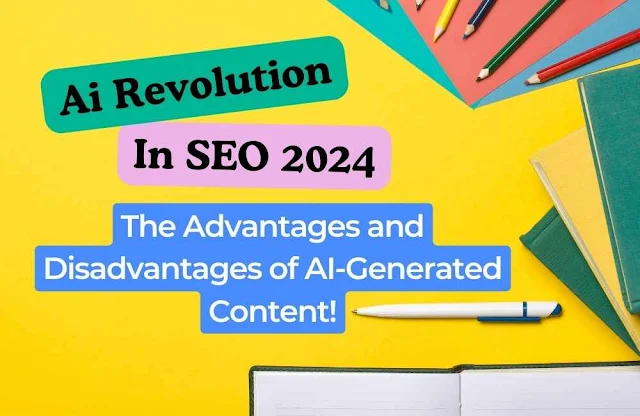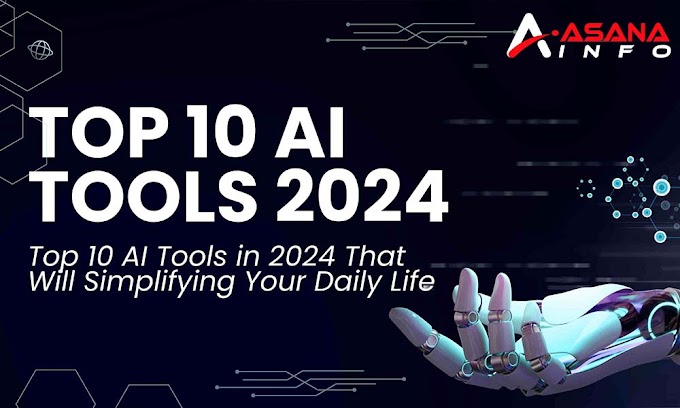When creating content, it's important to consider your target audience. They have different needs and require different information. With AI-generated content, we can explore its impact on the digital landscape. To make the text easier to understand, we should organize it logically.
Start with the most important information and keep the sentences short. Long sentences can be confusing and lose their main point. Use simple and familiar vocabulary and avoid acronyms, jargon, and legal language. Use the active voice to make it clear who is doing the action.
Understanding AI-Generated
Content
In recent years, Artificial Intelligence (AI) has completely transformed the landscape of content creation. The technology has promised unparalleled efficiency and innovation, allowing businesses to create content at a scale and pace that was once unimaginable.
However, as with any new
technology, it is important to carefully consider the pros and cons of using AI
in content creation. Making informed decisions about incorporating AI into your
content strategy can help you maximize the benefits while minimizing the risks.
Advantages of AI-Generated Content
1. Efficiency and Time Savings
Artificial intelligence (AI) provides a significant boost to content production by automating repetitive tasks such as data analysis and basic writing. This automation enhances the efficiency of content creators, allowing them to concentrate on more strategic aspects of content creation.
By
eliminating the need for manual intervention in tedious activities, AI boosts
productivity, saves time, and makes it possible to produce more high-quality
content in less time.
2. Enhanced Personalization
Machine learning algorithms allow artificial intelligence to analyze user behavior, preferences, and demographics to personalize content and create a highly tailored user experience.
This enables AI-powered systems to dynamically
adjust their recommendations and suggestions based on individual user's unique
needs and interests, resulting in a more engaging and satisfying experience for
each user.
3. Consistent Quality
The implementation of Artificial Intelligence (AI) in content creation guarantees a uniform and consistent tone, style, and grammatical accuracy.
This, in turn, reduces the likelihood of human errors and helps to establish a
stronger and more recognizable brand identity. Additionally, consistent and
error-free content enhances user trust, which plays a pivotal role in
establishing long-term customer relationships.
4. Scalability
Artificial Intelligence (AI) has changed the way businesses produce content. It helps companies create large volumes of high-quality content quickly and efficiently. This saves businesses time and money while ensuring that their content is accurate, consistent, and engaging.
AI-generated content
can be optimized for digital channels like SEO and social media, increasing its
reach and impact. The result is that businesses can produce more effective
content with less effort.
5. Data-Driven Insights
I analyze data to better understand user engagement, preferences, and
trends. By using this information, I help businesses enhance their content
strategy and provide recommendations for improving user experiences. This helps
companies optimize their content and increase engagement with their target
audience.
Disadvantages of AI-Generated Content
1. Lack of Creativity and Originality
While AI excels in data-driven tasks, it may struggle with creativity and
producing truly original content that resonates emotionally with the audience.
2. Ethical Concerns
AI-generated content raises ethical questions regarding plagiarism,
ownership, and the potential misuse of automated content creation for
misleading or malicious purposes.
3. Limited Contextual Understanding
AI may struggle to grasp the nuances of context, leading to content that
lacks depth or fails to accurately interpret cultural or social cues.
4. Over Reliance on Algorithms
An over-reliance on AI algorithms may result in a homogenized content
landscape, diminishing the diversity and richness that human creators bring to
the table.
5. Initial Implementation Costs
Integrating AI into content creation requires a substantial upfront
investment in technology and training, which may be a barrier for smaller
businesses.
SEO Optimization: Enhancing Visibility
and Relevance
1. Keyword Optimization
To optimize the visibility of your content in search engines and ensure that it is relevant to your target audience, it is essential to incorporate appropriate keywords throughout the content naturally and organically.
This not only helps to improve your search engine rankings but
also makes it easier for users to find the content they are looking for,
resulting in increased engagement and better user experience.
2. Engaging and Authoritative Content
Craft written materials that conform to the standards of search engine
optimization, while still managing to captivate the attention of readers and
establish the brand as a reputable and knowledgeable entity in the field.
3. Addressing User Intent
To improve user experience and increase engagement, it is crucial to comprehend user intent and cater to it. This can be achieved by creating content that directly addresses their frequently asked questions or offers valuable insights.
This approach aligns with the Search as a Service (SAAS)
model, which emphasizes providing relevant and helpful content to users. By
adopting this strategy, businesses can enhance their online presence and build
trust with their audience by demonstrating their expertise and willingness to
provide value.
4. Effective Metadata Usage
To improve the visibility of your website on search engines, it's essential
to optimize your meta titles and descriptions. By including strategic keywords
in these elements, you can increase click-through rates and signal the
relevance of your content to search engines. This will ultimately help your
website rank higher in search results and attract more traffic.
SEO Strategies for Evolving Landscape
Staying Agile with SEO Algorithms
To make sure that your content is visible to your target audience on search engines, it is crucial to stay up-to-date with the latest algorithmic advancements. This can be achieved by continuously adapting your SEO strategies to keep pace with these changes.
By doing so, you can ensure that your content
is effectively optimized for search engines and remains relevant to your target
audience.
Integrating AI-Driven SEO Tools
With the help of cutting-edge SEO tools that leverage the power of AI, you can conduct a comprehensive analysis of data, optimize keywords with precision, and monitor performance with ease.
This process can have a substantial impact
on your content's visibility and effectiveness, leading to higher search engine
rankings and a surge in traffic to your website.
Conclusion: Striking a Balance
In the constantly evolving world of AI-generated content, it's important to
strike a balance between automation and human creativity. By taking advantage
of the benefits and reducing the drawbacks, businesses can fully utilize AI for
content creation while maintaining authenticity and relevance.
AI is a powerful tool in the content creation process, but it's essential to remember that the human touch is unbeatable when it comes to producing truly impactful and meaningful content.
By thoughtfully managing the advantages and
disadvantages, businesses can leverage AI's potential while staying true to
their voice and values.







